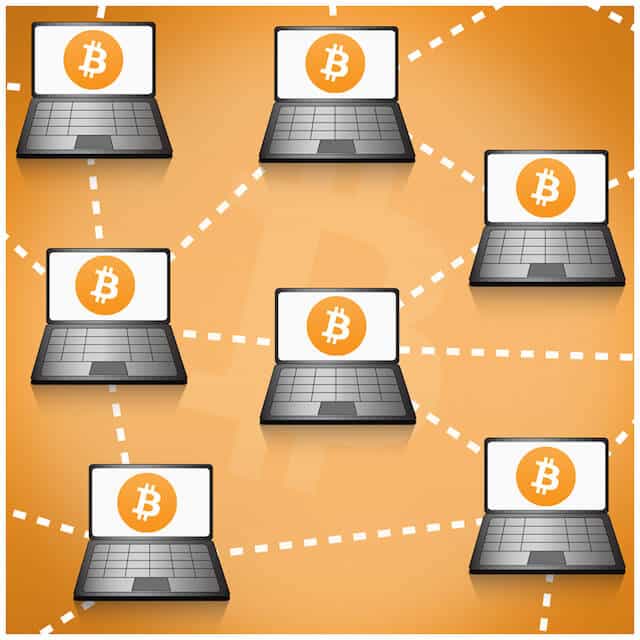Disclaimer: This author’s opinions do not reflect the opinions of coinbrief.net
On May 15, 2014, the Federal Communications Commission voted 3-2 to approve the prioritization of connection speeds in exchange for increased payments. This approval means that internet service providers (ISPs) now have legal permission to charge users more money for faster internet speeds. This decision comes in the midst of a nationwide debate on net neutrality: should the government allow ISPs to charge more for faster speeds or should the government force the ISPs to give everyone equal connection speeds at equal prices?
While the supporters of net neutrality claim that forcing companies to provide equal speeds at equal prices would preserve the liberty of the internet, and prevent the establishment of ISP monopolies, such as Comcast, the truth is that net neutrality would actually mark the end of a free internet. Additionally, net neutrality would do nothing to prevent ISP monopolies, but would actually encourage, and facilitate, the establishment of an internet monopoly. Controlling the price of connection speeds stifles competition and strengthens the power of existing Internet Service Providers, which in turn could potentially compromise the expansion of Bitcoin.
Net Neutrality Encourages ISP Monopolies
In order to understand why net neutrality will facilitate the establishment of ISP monopolies, we must first examine what net neutrality actually does. If passed, as mentioned above, net neutrality legislation will force Internet Service Providers to provide the same connection speeds at the same price, to everyone, regardless of who they are.
Sure, this forced “equalization” will make internet faster and cheaper for the average consumer, but only for a limited amount of time. Why? Because forcing ISPs to provide these kinds of services for low prices makes actually providing internet much more expensive. ISPs will have to provide the same connection speed for the same price, regardless of whether or not the customer is a college student who only uses basic internet services, like social networking and video streaming, or if the customer is a multi-billion dollar, multinational corporation that the internet for much more strenuous things than the college student does. Net neutrality would make it much less likely for a startup ISP to provide cheap prices to average users because they wouldn’t be able to charge power users, such as large companies, higher prices for their connection speed. Thus, large companies will benefit from a lower price than they would have to pay without Net-Neutrality at the expense of the average user, who will pay a higher price on average.

As we can see, after a certain amount of time, the largest ISP will be able to eliminate all of its competition from the market because of its sheer size; whoever has the most money at the beginning of Net-Neutrality will eventually become the Internet Service Provider Monopoly. Furthermore, Net-Neutrality will only add another barrier to entry on top of the already suffocating power that local government has over our internet access. After Net-Neutrality, not only will the regulations regarding the right of way to their utilities stifle competition, but the federal price controls will push small businesses out of the market entirely. Then, after an ISP monopoly emerges from this web of government restrictions and regulations, the ISP will all of a sudden be responsible for providing internet to the entire country. Of course, the monopoly will certainly take advantage of that type of power. Suddenly, the company won’t be able to afford to provide internet to everyone at the current mandated price. In order to continue providing internet service to the country, the monopoly will demand that the government allow them to raise their prices. If the government declines, the monopoly would still be able to just ignore the law, as any penalties placed upon the company will compromise the general public’s access to internet.
How An Internet Monopoly Could Compromise Bitcoin
We have seen above how Net-Neutrality could– likely– create an Internet Service Provider monopoly, and how the ISP monopoly would be incentivized to lobby the government for a higher price cap or to ignore the government’s mandates altogether. So, how does the establishment of such a monopoly put the expansion of Bitcoin– as well as all the other crypto-currencies– in jeopardy? Well, it really isn’t a complicated, nor far-fetched, scenario.
With the incentive to increase the price of internet access, the ISP monopoly in doing so would price many people out of the internet market. By default, the people excluded from the internet market would also be excluded from Bitcoin. If they don’t have access to the internet, obviously they have no way to access, and use, internet-based currencies. Net-Neutrality legislation, along with competition-killing restrictions placed on ISPs by local governments, would produce this kind of price increase. The problem with centralizing any good or service– be it in the form of a private monopoly or government legislation– is that access to that good or service becomes dependent on the whims of the monopoly controlling the supply.

Governments can not prevent these kinds of monopolies from arising because government is the reason for the establishment of monopolies in the first place. Both types of government regulation mentioned here, Net-Neutrality and local regulations, hinder competition and make it more likely for a single company to monopolize the market. For the reasons mentioned above, the centralization of internet access equates to the centralization of Bitcoin. Bitcoin, by its very nature, relies on a decentralized network for its expansion. Centralizing Bitcoin in any way compromises its potential to reach critical mass, in which it would completely replace the currency monetary system of government-controlled fiat currency. We need decentralization in order for Bitcoin to become an overall success as a money. Centralizing the internet through Net-Neutrality would work in the opposite direction of the main goal of Bitcoin. Fortunately, free market innovations will likely remove the need for Internet Service Providers by completely decentralizing the internet.
Bitcoin & Free Market Will Prevail: Decentralized Internet
It seems to be the case that there is no piece of government legislation that can truly solve the problem of ISP monopolies that are supported by local governments. Rather than try to fix existing regulations with more regulations, and thereby creating a whole new slew of unintended consequences, such as the scenario described above, it might be a more expedient to develop an alternative system that would remove centralized ISPs from the equation entirely.
Regardless of the results of the Net-Neutrality debate, it seems very likely that the free market will render Internet Service Providers obsolete anyway. Peer-to-peer technology– such as Bitcoin– progresses every day, making the internet more and more decentralized. At some point, we will reach a state of complete decentralization of the internet. This innovation has already taken place; the Deep Web offers a peer-to-peer, distributed network that cannot be controlled by any monolithic entity. It requires no ISP. Every computer in the network acts as a “node”, or a connection station that helps to run this “distributed internet.” It seems likely that at some point this kind of P2P internet will be the norm. It doesn’t seem like too much of a stretch to imagine a time where computers will come with an access point, such as TOR, that will allow users to connect to a P2P internet without relying on ISPs to gain access to the internet.
The next step would be to decentralize utilities by moving away from the power grid, which most likely would happen through innovation in alternative energy sources that can be ran efficiently by individuals and be self sustaining. After these innovations, we will have a system of internet that can’t be controlled by any monopoly, be it a private or public entity. With decentralized internet and energy, there would be no barriers to Bitcoin’s expansion. Moreover, decentralization brings freedom. It moves us away from this system of governments micromanaging our lives. Regardless of our political beliefs, whether we are an voluntarists, communists, or anything in between, we can all benefit from removing the control of the internet from both public and private monopolies. As we have seen in this article, Net-Neutrality does not accomplish this goal, but rather facilitates the monopolization of the internet, thus increasing the centralization, and ultimately could lead to the demise of Bitcoin.

 2 Comments
2 Comments

I was curious about this as well. Great article!
Governments love control. It’s only a matter of time, before they try to control the flow of Bitcoins directly with new laws about owning Bitcoins.